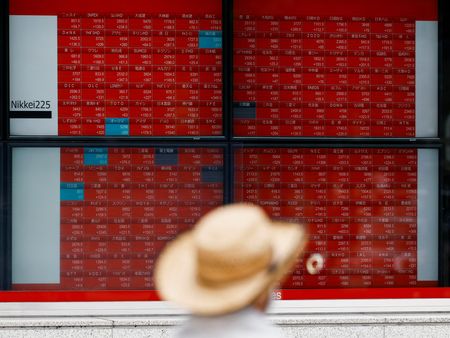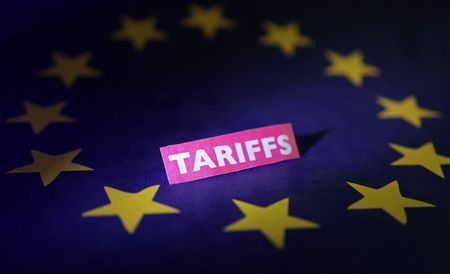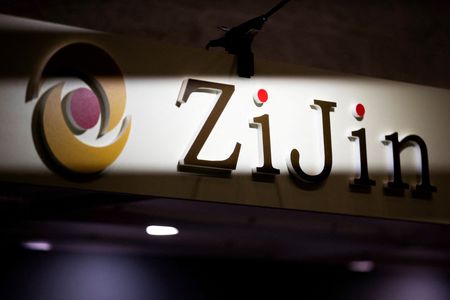(Reuters) – Japanese investors withdrew heavily from foreign stocks in the week through February 8, snapping an eight-week buying spree as U.S. President Donald Trump’s widening tariffs threat sparked fears of global trade relationships reshaping in the U.S.’ favour.
Japanese investors divested 1.27 trillion yen ($8.31 billion) worth of foreign equities on a net basis, the most for a week since November 2022, according to Japan’s Ministry of Finance data.
Trump has previously announced steep tariffs on Mexico, Canada, and China — although he has delayed implementing some of those — and towards the end of last week, widened his focus by threatening to slap reciprocal tariffs on countries that tax the import of U.S. products.
In response, Japanese investors sought the relative safety of bonds, pumping in a robust 1.75 trillion yen into foreign long-term bonds, the largest amount in any week since September 2024. They also snapped up a net 18 billion yen worth of short-term bills.
At the same time, Japanese shares suffered a net 384.4 billion yen worth of foreign outflows, the second week of net sales in a row.
Foreigners also ditched 187.2 billion yen worth of long-term Japanese bonds, snapping a three-week-long buying trend. They, however, purchased short-term bills of a net 508.1 billion yen, registering a fifth weekly net purchase in six weeks.
($1 = 152.7900 yen)
(Reporting by Gaurav Dogra and Patturaja Murugaboopathy in Bengaluru; Editing by Savio D’Souza)









